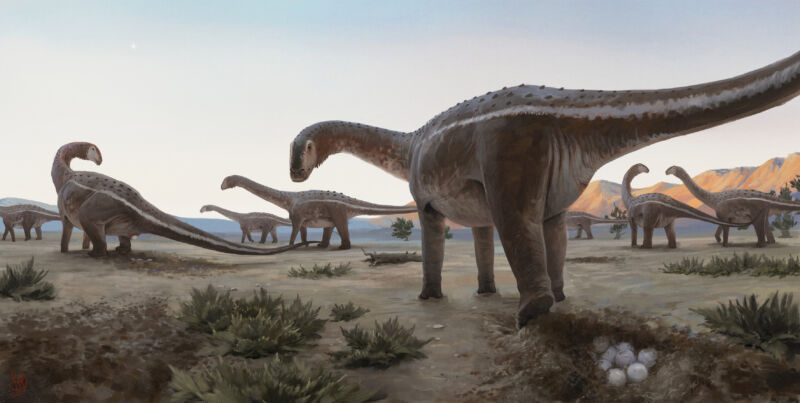
Enlarge (credit: Júlia d'Oliveira)
They were the largest land creatures the Earth has ever known. But what survived millions of years of fossilization in one specific area of the Ponte Alta region of Brazil was not their massive bones, rather, it was their rare and relatively tiny eggs. And many of them! The first titanosaur nesting site in the country was recently announced in a paper published in Scientific Reports.
Sauropods, a group of long-necked herbivores, were a diverse type of dinosaur that lived from the Jurassic era through the Cretaceous, a period spanning from 201 million years to 66 million years ago. Titanosaurs were a clade of sauropod—a group with a common ancestor—that was the last of this lineage to exist on this planet in the Late Cretaceous. While their name justifiably implies an enormous size, not all of them were huge.
South America is well-known for its titanosaur fossils, particularly in Argentina, home to some of the world's most spectacular titanosaur nesting sites and embryonic remains. Titanosaur eggshells and egg fragments are known in Uruguay, Peru, and Brazil, but a fossilized egg here and there doesn't provide evidence of a nesting site. Several egg clutches, numerous eggs and egg fragments in more than one layer of sediment, does.
No comments:
Post a Comment